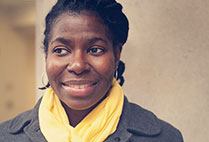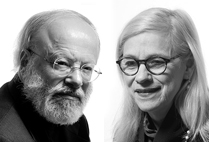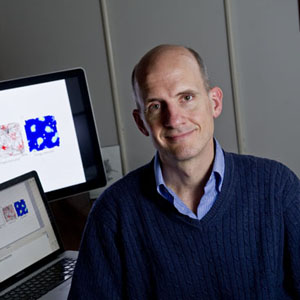The National Institutes of Health has given $10 million to a research team led by Helen Tager-Flusberg, a College of Arts & Sciences professor of psychology, to establish an Autism Center of Excellence at Boston University. The five-year grant will fund research into many of the least-probed aspects of the increasingly common disorder, which baffles scientists and frustrates parents hoping for guidance in helping children with a broad range of social and learning deficits.
Recent studies suggest that one in 88 children has an autism spectrum disorder (ASD), up from an estimated one in 155 a decade ago, according to the federal Centers for Disease Control and Prevention. ASD is characterized by social impairment, unusual repetitive behaviors, and difficulty communicating. But the most mystifying of these is an inability to acquire spoken language, which affects about 30 percent of the autism population. The new BU center will marshal researchers from several fields to study autism and language. “There has been almost no research on this group of children and adults, and we have designed several key projects to address this gap in our knowledge,” says Tager-Flusberg, director of the center. One project will be a study of a promising new intervention called auditory motor mapping training, or AMMT, an innovative behavioral intervention that combines the use of singing and motor activities to strengthen parts of the brain that appear abnormal in children with autism.
“Obtaining this funding means that we’ll really be able to bring together everyone involved on these projects,” says Tager-Flusberg, who has studied language acquisition and autism for three decades and is president of the International Society for Autism Research. She calls the development “the most exciting moment” in her career, with funding that will enable her and fellow scientists to embrace new tools, in neuroscience and other fields, to answer these “really important questions.”
Researchers will study why children with autism struggle to acquire spoken language.
The new center brings together leading neuroscientists from the University in collaboration with colleagues from Beth Israel Deaconess Medical Center, Massachusetts General Hospital, Harvard Medical School, Northeastern University, and Albert Einstein College of Medicine. In addition to Tager-Flusberg, the principal investigators for the center’s major projects are Barbara Shinn-Cunningham, a College of Engineering professor of biomedical engineering and director of the BU Auditory Neuroscience Laboratory, and Frank Guenther, a Sargent College professor of speech, language, and hearing sciences and biomedical engineering director of the BU Speech Lab and the BU Neural Prosthesis Lab.
The research will focus on the development of novel methods for assessing this group of people with autism using innovative technologies, as well as brain and behavioral studies aimed at identifying the reasons why many children with autism fail to acquire spoken language. And the grant will enable researchers to evaluate AMMT, an outgrowth of something called melodic intonation therapy, which has proven effective in helping stroke patients with aphasia recover their ability to speak. In preliminary clinical trials, AMMT has shown great promise in promoting speech in children with an autism spectrum disorder. After eight weeks of AMMT treatment (five days per week), the six children in the Beth Israel pilot study—who ranged in age from six to nine and were previously completely nonverbal—were able to approximate whole words and phrases, with improvements seen as early as two weeks into therapy.
Other investigations will involve the use of magnetic resonance imaging as well as electrophysiology and the efforts of SAR and ENG scientists, says Tager-Flusberg. “Developing this set of projects involves so many different disciplines and scientists, and in the past I haven’t been able to do more than some pilot work,” she says.
















































Congratulations and well done on this vital and much needed research and health service development. At Rinnekoti in Finland at our various service centers, most particularly at both our hopsital and research Center (Norio) we specialize in research and health service provison for children and adults living with intellectual and developmental disability. We are keen to align our energies and efforts with international likeminded organizations and look forward to hearing and learning more from BU